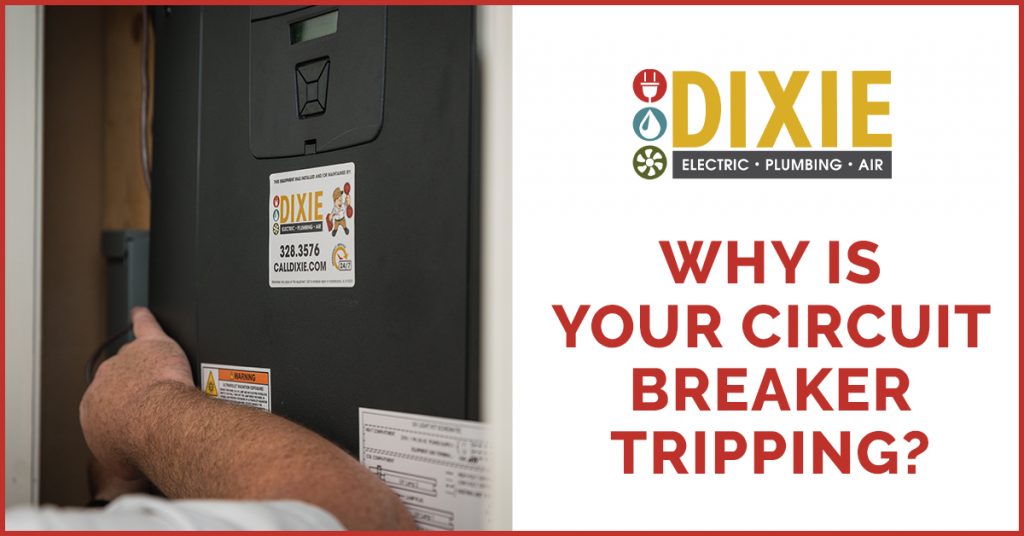It’s a common occurrence: you plug something in, and it doesn’t work. Or you have several items plugged into an outlet, and your power goes out all of a sudden. Then, you realize that your circuit breaker has tripped.
Three Common Causes and Solutions to Your Circuit Breaker Tripping
Whether it’s a one-time thing or happens frequently, there are plenty of things you can do to make sure your electricity is flowing freely through all circuits in the house, and that power stays on when it should.
First Potential Cause: An Overloaded Circuit
When we say “load,” referring to electricity, we mean the amount of electricity flowing through a circuit. Every device, appliance, and electronic item in your home puts off a specific load, and your home’s circuit breaker is designed to handle that amount.
Sometimes, however, too many devices are plugged into one outlet, which increases the load intended for that circuit. When that happens, the circuit breaker trips to keep from overheating.
Solution: Shifting Devices and Plugs
A common solution is to shift power-consuming devices to other outlets to spread around the current load. You can also turn off or unplug any appliances you’re not using if it makes sense to do so.
When moving around plugs, you might notice loose wires. If you do notice this, turn off the power to that circuit and tighten the wires. You should see a difference. If nothing happens, keep reading. You could be dealing with a short circuit or ground fault.
Second Potential Cause: A Short Circuit
When a hot wire (high-voltage flowing through it) touches another hot or neutral wire, the electricity can repel itself and cause a short circuit. You might even see sparks. Now the repairs become a bit more tricky.
Solution: Replace Wiring and Other Parts
This is where solutions aren’t as cut-and-dry as an overloaded circuit breaker. It takes professional skill to replace wiring within walls or replacing or repairing parts in your device (another place where the short might occur).
Rewiring is best left to the professionals, as other issues can arise from faulty wiring down the road, including housefires and other potential disasters. Call a trusted professional to help if you feel that you have a short circuit anywhere in your home.
Third Potential Cause: A Ground Fault
Damaged wiring, faulty devices, and older appliances can cause electricity to take an unplanned path to the ground, causing an electric shock for homeowners and family members. They can happen in areas with excessive moisture, such as kitchens and bathrooms.
Solution: Ensure Your Home Is Protected Where It Counts
Most homes have ground fault circuit interrupters or GFCI outlets. These outlets shut off power to the affected circuit. If you live in an older home without GFCI outlets, installing one is an essential first step.
If you do have GFCI outlets, additional wiring and rewiring tasks might apply. Again, it’s essential to call a professional when dealing with electrical issues. From sparks to shocks to the potential for fires, mishandling electrical equipment within your home can be dangerous.
Have questions about these repairs or anything else related to your home’s circuit breaker and electricity? Call Dixie! There’s no job too big or too small for our professionals.
Call Dixie, and it’s done!
To schedule a service with Dixie, call 334.328.3570 for Montgomery or 334.246.4914 for Auburn. You can also schedule an appointment online.







